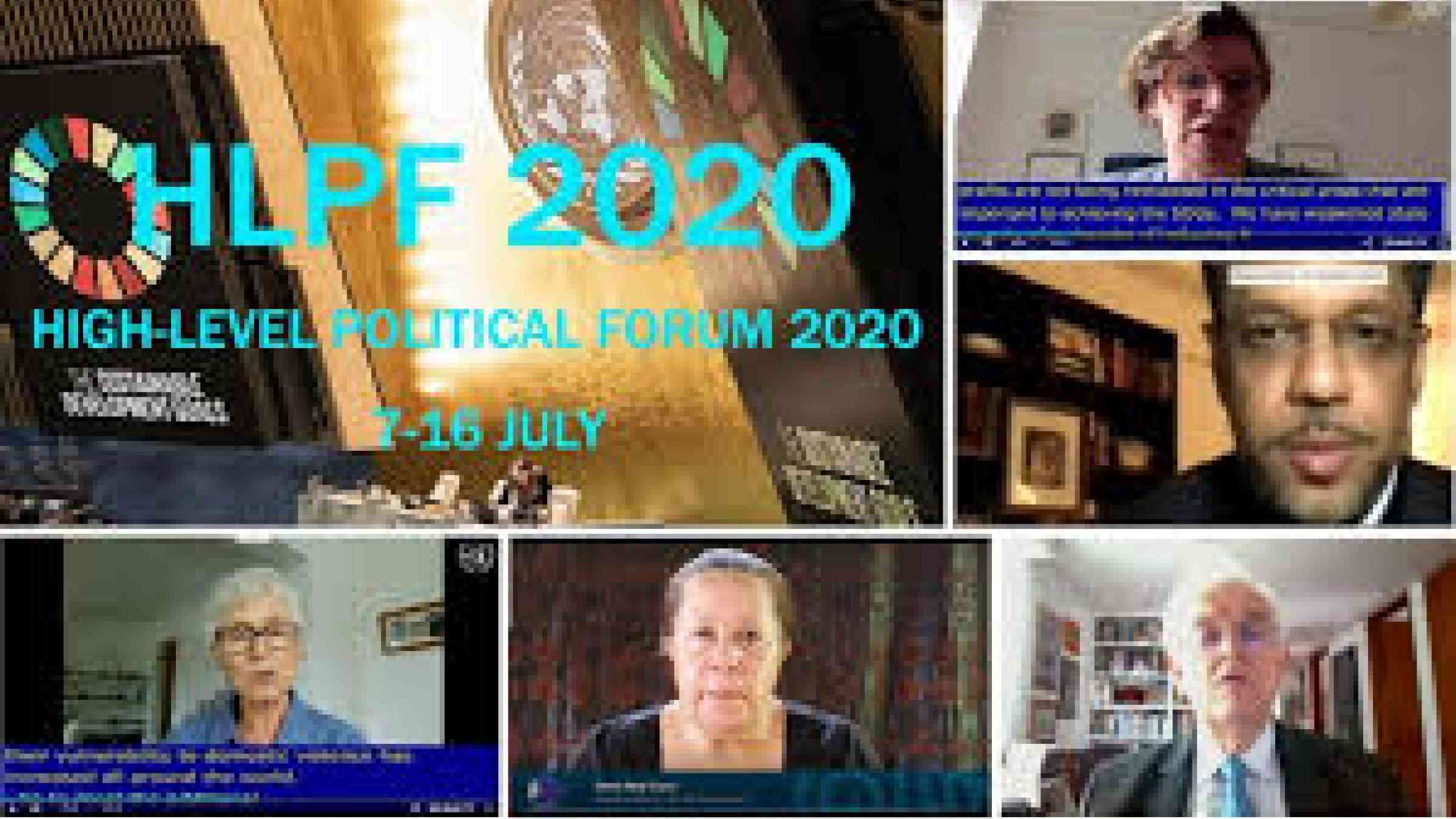Governments call for a greater focus on prevention and “Building Back Better” post-COVID

National and local governments, civil society representatives, the private sector, academia and the United Nations system gathered virtually in July 2020 for the annual High-Level Political Forum on Sustainable Development (HLPF). Discussions on this year’s theme of “Accelerated action and transformative pathways: realizing the decade of action and delivery for sustainable development” focused on the hurdles to achieving the Sustainable Development Goals (SDGs) due to the COVID-19 pandemic and subsequent socio-economic fallout.
Speakers called for urgent action to address the dual challenge of the COVID-19 pandemic and the climate crisis if countries are to have a chance at achieving the SDGs.
“The [COVID-19] crisis is compounding the obstacles countries already faced to eradicate poverty, eliminate inequality and combat climate change”, said the President of the Economic and Social Council, H.E. Mona Juul.
Several delegates and participants highlighted the Sendai Framework for Disaster Risk Reduction as one of the most important policy tools at Government’s disposal to rise to this challenge.
In his statement, H.E. Tijjani Muhammad Bande, President of the General Assembly stated that “as world leaders strategize on how to build back better from COVID-19, achieving Sendai Framework, SAMOA Pathway, Paris Agreement on climate change, and the 2030 Agenda for Sustainable Development, have become more important than ever”. He called on all countries, “to take strategically calculated and measurable actions to develop multi-hazard disaster risk reduction strategies”.
The importance of investing in risk reduction for prevention echoed throughout the discussions as speakers called for action to ensure such a devastating global crisis cannot happen again.
The Alliance of Small Island States stressed that “a lack of preventative measures that have brought us to this point. The 2030 Agenda, the Paris Agreement, the Sendai Framework for Disaster Risk Reduction, and the Addis Ababa Action Agenda if implemented the way they were intended could have alleviated much of the hardships being experienced today”. Some countries are already taking action in response to lessons learned from the COVID-19 pandemic response with a call for countries to review and reform national disaster management systems in line with the Sendai Framework. The European Union advocated for an increase in investments in prevention through the “building back better” approach, and the Government of India encouraged all countries to join the Coalition for Disaster Resilient Infrastructure.
For the first time, DRR appeared into the official HLPF agenda titled Protecting the planet and building resilience, this is a significant breakthrough which hope will continue an annual basis. The UNDRR office statement was also delivered during this session.
Deliberations at the HLPF reaffirmed that much more work is needed to integrate disaster risk reduction into policies and investments for sustainable development and to create an all-of-government and all-of-society culture of disaster prevention and resilience. The Special Representative of the Secretary-General for Disaster Risk Reduction, Mami Mizutori, said that the dual COVID-19 and climate change crises are “evident that the epoch of hazard-by-hazard risk reduction is over and time has come for all-of-society- and all-of-government approach to manage disaster risk reduction with a multi-hazard approach, and with a clear understanding of the systemic nature of risk.”
Ms. Mizutori called on all counties to develop national and local disaster risk reduction strategies, as per Target (e) of the Sendai Framework, that take a truly multi-hazard approach, including pandemics and epidemics, and recognize poverty as a key driver of disaster.
Its Ministerial Declaration, the Forum concluded “to invest and cooperate in prevention and resilience as essential components of disaster risk reduction, to increase preparedness and to build back better”, including blending “ short-term actions with long-term disaster risk reduction strategies and policies, to prevent the creation of new risks, reduce existing risks, resist shocks and mitigate their consequences” as well as “investing in reducing hazard exposure and vulnerability, nature-based solutions, information and communication networks, early warning systems and evidence-based policymaking”.